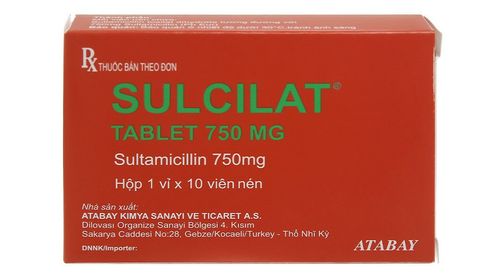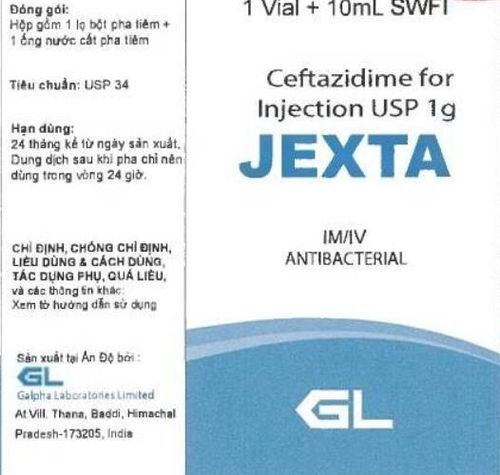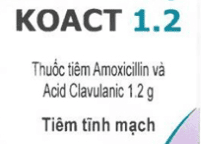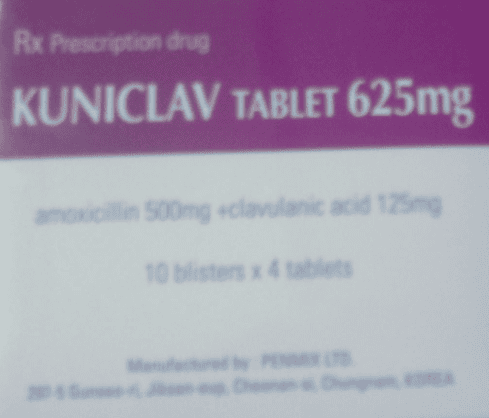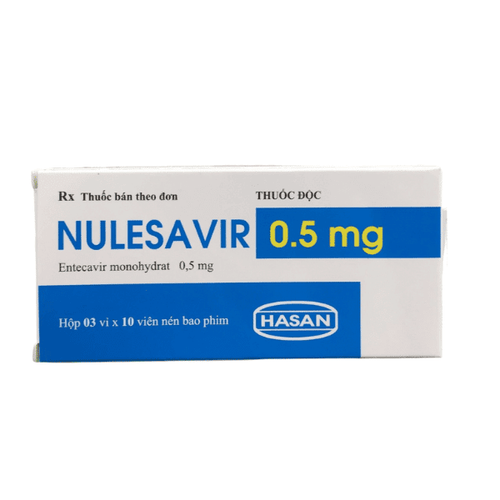This is an automatically translated article.
Lycoplan belongs to the group of antibiotics, used in the treatment of infections caused by Gram-positive bacteria. Lycoplan is administered by injection with the main active ingredient being Teicoplanin. Dosage, usage and side effects of Lycoplan will be in the article below.1. What is Lycoplan?
Lycoplan is an antibiotic that is prepared in the form of a powder for injection. With the main ingredient is Teicoplanin 200mg in each vial of powder for injection. Teicoplanin is a glycopeptide antibiotic used in the treatment of aerobic and anaerobic gram-positive infections. In antibiotic studies, Teicoplanin has the same structure, mechanism of action and spectrum of action as Vancomycin.
2. Lycoplan drug effect
Lycoplan drug with the main active ingredient is Teicoplanin will only have antibiotic effect on Gram-positive bacteria strains. Thereby, Lycoplan will inhibit the synthesis of the cell envelope of Gram-positive bacteria, so that the next generations of bacteria when duplicated will not survive in the body environment.
Teicoplanin is a specialized antibiotic used to treat serious infections in hospitals and specialties.
With the effect of killing susceptible bacteria, the antibacterial spectrum of Lycoplan can be listed to include the following bacteria: Listeria monocytogenes, Clostridium spp, Corynebacterium spp, Streptococcus young - viridans (without viridans and with viridans) , Strep. pneumoniae.
In which, Lycoplan is particularly sensitive to intestinal cocci, but the use of antibiotics with Teicoplanin component is used to treat infections caused by those strains of bacteria, unless the bacteria are already resistant to many bacteria. previous antibiotics and cause severe systemic symptoms.
Lycoplan is rapidly absorbed from the parenteral route and poorly absorbed from the gastrointestinal tract, the drug is mainly absorbed from the muscles and peritoneal cavity. In patients with normal renal function, the first half-life of the drug is 35 minutes, the second phase is 10 hours, the final phase is 87 hours.
3. Indications and contraindications for taking Lycoplan
With the active ingredient is Teicoplanin antibiotic, Lycoplan is indicated for the treatment of the following severe infections
Severe infections caused by Gram-positive bacteria resistant to Methicilin, resistant to Cephalosporins (eg Staphylococcus aureus strain) Patients with inflammation peritoneal peritoneal injection, in a patient being treated with ambulatory peritoneal dialysis. Prophylaxis of Gram-positive infective endocarditis during dental surgery in patients with heart disease at risk. Special note in patients allergic to beta-lactam antibiotics Contraindications to Lycoplan:
Patients who are sensitive to any component of Lycoplan The patient is allergic to Vancomycin, or previously resistant to Vancomycin.
4. Dosage & how to use Lycoplan
Lycoplan antibiotics are administered intravenously, intravenously, intramuscularly or intraperitoneally.
Dosage of Lycoplan in adults with stable renal function
First day: Injection or intravenous infusion at a dose of 6 mg/kg . The next days: Use a dose of 6 mg/kg/day intravenously or 3 mg/kg/day intravenously, or intramuscularly once a day. For severe infections, a higher dose should be used; for potentially fatal infections, a dose of 6 mg/kg/day x 2 times for 1-4 days, then a maintenance dose of 6 mg/day. kg/day by injection or intravenous infusion. Dosage of Lycoplan in children
10mg/kg, administered every 12 hours, after taking 3 times the starting dose, continue the dose from 6-10mg/kg/day. This is the highest dose for children with severe infections or children with neutropenia. Dosage of Lycoplan in infants
The first day: 16mg/kg, then maintain 8mg/kg/day, administered by slow intravenous infusion for 30 minutes. Dosage of Lycoplan in patients with renal impairment
Creatinine clearance 40-60ml/min: Reduce dose by half during the day or use daily intervals (1st day, 2nd day, 3rd day) Creatinine clearance < 40ml /min: Reduce dose to 1⁄3 or every 3 days. Creatinine clearance < 20ml/min: Treat with Lycoplan only if it is controlled and plasma concentrations are monitored. Dosage of Lycoplan for prevention of endocarditis in dental surgery
400mg injection or intravenous infusion at the beginning of patient anesthesia. In patients with prosthetic heart valves, Lycoplan and 1 Aminoglycoside should be injected together. Intraperitoneal injection in patients with peritonitis secondary to ambulatory peritoneal dialysis: 20 mg Lycoplan/liter of dialysis fluid. The peritoneal dose will be reduced to 1⁄2 at the second week of treatment and to 1⁄4 at the third week of treatment.
5. Side effects of Lycoplan
Side effects of antibiotics are always something to be concerned about. With strong antibiotics such as Lycoplan, the accompanying side effects also need to be kept in mind to intervene during the patient's use of the drug.
Whole body: Body weakness, dizziness Nervous: Headache, convulsions if heart is in ventricles Gastrointestinal: loose stools, nausea Skin: Allergies, local reactions Blood: hematological reactions Liver and kidney function may be impaired Superinfection Rare: Chest discomfort, increased heart rate, increased uric acid and amylase in the blood.
6. Notes when using Lycoplan
Because of the similar effect and structure to Vancomycin, Vancomycin-resistant strains such as Streptococcus are both coagulase-negative and positive, Lactobacillus spp. and Leuconostoc spp will also be resistant to Teicoplanin (Lycoplan) Patients on Lycoplan should be periodically tested for liver function, hematology and renal function. According to clinical experience, Lycoplan and Teicoplanin-containing antibiotics only should be used during pregnancy if absolutely necessary. During lactation, if Lycoplan is being treated, the mother should stop breastfeeding. Lycoplan is an antibiotic of the glycopeptide group, used in the treatment of serious infections caused by Gram-positive bacteria. Lycoplan is a prescription drug, only used in cases where the patient is resistant to many antibiotics and must be used under the direction of a specialist.




